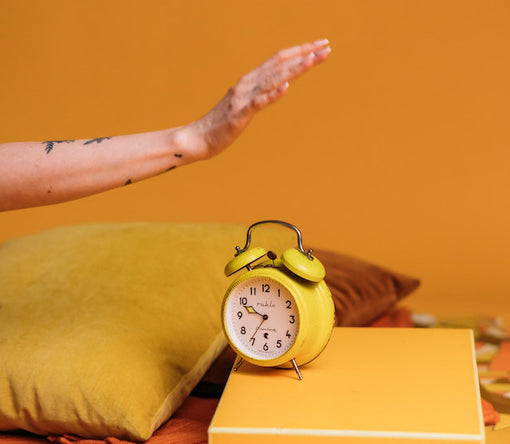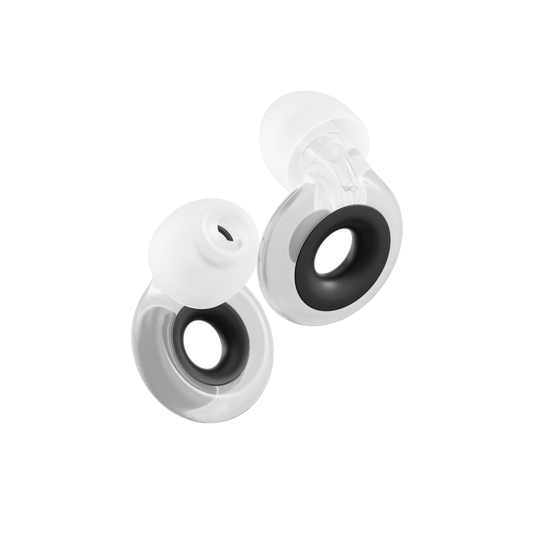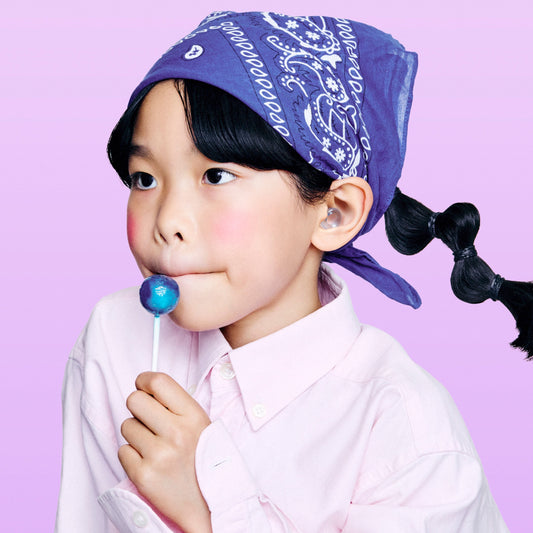Key highlights:
- Insomnia affects more people than you might think – around 30-48% of adults
- As well as getting a poor night’s sleep, symptoms of insomnia include mood swings, difficulty concentrating, reduced performance and work and trouble socializing
- Luckily, there are ways of dealing with insomnia naturally including relaxation techniques, cognitive behavioral therapy and using earplugs for sleeping
Tick….tock…tick…tock…we’ve all been there.
Staring at the ceiling, listening to the ticking clock, willing yourself to finally fall fast asleep. But no, you’re wide awake. At 3 am. So you start Googling “funny cat videos.”
We’ve all heard the word. It’s called insomnia. And it’s not just a minor annoyance, it’s actually considered a sleep disorder. And with a whopping 30-48% of adults suffering from it each night, it’s more common than you may think. Insomnia not only drains your energy but can also have a serious effect on work life, mood, and health.
So, let’s take a look at what insomnia is, the impact of a lack of sleep and – most importantly – how to deal with insomnia, so you can get some much-needed shut-eye.
Understanding insomnia
Do you have problems sleeping? If so, chances are you suffer from insomnia.
And it doesn’t just mean the typical laying awake all night clock-watching.
You may also be an insomnia sufferer if you:
- Find it hard to fall asleep
- Wake up several times during the night
- Lie awake for periods of time at night
- Wake up early and can’t go back to sleep
- Still feel tired after waking up
- Feel tired and irritable during the day
- Find concentration difficult


Types of insomnia
There are three main types of insomnia:
- Transient, which lasts for less than a month. It’s usually triggered by lifestyle or psychological factors – for example, a relationship issue or a big change in diet.
- Short-term, which is like transient insomnia but stays with you for a longer period of time. It could be caused by something like grief or the build-up to a house move, and usually lasts 1-3 months.
- Chronic: If your sleep is disrupted for three months or more, it’s likely you’re suffering from chronic insomnia, which is a long-term pattern of difficulty sleeping.
What causes insomnia
Many different factors can contribute to insomnia. With transient or short-term insomnia it could be as simple as:
° Jet lag
° A relationship issue or nerves about an imminent event, e.g., job interview
° Sleeping in a new place
° Alcohol and drug abuse
° Chronic pain
° Changes in diet
° Caffeine intake
° And with more chronic insomnia it could be explained by:
° Mental health conditions, such as schizophrenia or bipolar disorder
° Alzheimer's disease or Parkinson's disease
° Restless legs syndrome
° Menopause
It’s worth noting that many medicines for these conditions or illnesses can also cause insomnia.
How few hours of sleep indicate insomnia?


The amount of sleep each person needs varies greatly, so it’s hard to put a specific number on how many (or how few, more accurately) hours of sleep is typical for insomnia sufferers. A general guide for the recommended amount of sleep is:
Adults: 7-9 hours
Children: 9-13 hours
Toddlers/babies: 12-17 hours
If you feel that you’re getting significantly less than that, coupled with the symptoms mentioned previously, then you can start to consider insomnia as a potential cause.
Impact of insomnia
Anyone who’s suffered with insomnia before knows that the next day is a minefield of feeling tired, cranky, and disorientated. But there are other effects it has that are worth thinking about:
° Memory issues
When you’re asleep your brain is working hard to form connections that help you process and store information. A bad night’s sleep can disrupt this process and can negatively impact short- and long-term memory – as well as concentration levels.
° Weakened immunity
If you’re getting too little sleep you could be more at risk of catching viruses such as common colds or flu. Sleep deprivation can seriously weaken your immune system.
° Accidents
Being drowsy can affect your judgment and reaction times, so car accidents are more likely. Along with injuries from other causes such as trips and falls.
° Weight gain
The chemicals that tell your brain that you’re full are reduced when you have a poor night’s sleep. Which means that you’re more likely to be reaching for those late-night snacks.
° Mood changes
Being deprived of sleep can make you moody, super emotional, and quick-tempered. If you suffer from chronic insomnia, it can start to manifest in more serious ways such as anxiety and depression.
Strategies to handle insomnia
The good news is that insomnia is usually treatable. Here are some of our top strategies for dealing with insomnia:
- Establish a consistent sleep routine
Consistency is key when it comes to regulating your body's internal clock. Aim to go to bed and wake up at the same time every day, even on weekends. This helps to regulate your body's sleep-wake cycle, making it easier to fall asleep and wake up naturally.
- Create a sleep-friendly environment
Your bedroom environment plays a crucial role in promoting quality sleep. Practice good sleep hygiene and make sure your bedroom is conducive to sleep by investing in comfortable bedding, controlling the temperature to a cool, comfortable level, and minimizing noise and light disturbances. Consider using blackout curtains or a white noise machine if needed.
- Practice relaxation techniques
Relaxation techniques can help calm your mind and prepare your body for sleep. Experiment with meditation, deep breathing exercises, or progressive muscle relaxation techniques before bedtime. These practices can help reduce stress and anxiety, making it easier to fall asleep.
- Consider cognitive behavioral therapy for insomnia (CBT-I)
CBT-I is a highly effective treatment for insomnia that focuses on changing behaviors and thought patterns related to sleep. It typically involves techniques such as stimulus control, sleep restriction, and cognitive restructuring. Working with a therapist trained in CBT-I can help you address underlying issues contributing to your insomnia and develop healthy sleep habits.
- Use sleep aids as a last resort
While over-the-counter and prescription sleep aids can provide temporary relief for insomnia, they should only be used as a last resort and under medical supervision. Sleep aids can have side effects and may not address the underlying causes of insomnia. It's essential to explore other strategies first and only use sleep aids when necessary and as directed by a healthcare professional.
The impact of sound disturbances on insomnia
Sound disturbances can significantly disrupt sleep patterns and contribute to insomnia by interrupting the natural sleep cycle and preventing you from entering the deepest stages of sleep – or staying in them.
Everyone’s tolerance levels are different, but noises like traffic, noisy neighbors, and construction sites can be particularly problematic, as they can be unpredictable. Household appliances, pets and snoring partners can also easily disrupt your sleep.


A quiet sleep environment is crucial for optimal rest because it allows the brain and body to relax fully. Sound disturbances can lead to fragmented sleep, resulting in feelings of sleepiness and fatigue during the day, as well as leaving you feeling irritable, grumpy or stressed.
Creating a sleep-friendly environment that minimizes noise disturbances can help improve sleep quality and overall wellbeing, ensuring you get a good night’s sleep – as well as increasing the chances of being in a good mood the following day.
Tips to prevent noise disturbances
If you live on a noisy street or have a partner who snores all night long, sometimes there’s no getting away from noise during the night. So, how to deal with insomnia? Luckily there are ways to reduce and block out external noise. Here are some ways to minimize noise disturbances:
- Use earplugs: Earplugs for sleeping are a simple yet effective way to block out external noises like traffic or noisy neighbors. Choose comfortable, high-quality earplugs like Loop Dream™ which are specifically designed for sleep. Every feature is made with sleep in mind, from the innovative earplug body that puts less pressure on your ears to the new hybrid memory foam and silicone Loop Dream Ear Tips that reflect the natural shape of your ears for all-night comfort – even if you sleep on your side. They also reduce nighttime noises like outside traffic and snoring with up to 27 dB SNR of noise reduction.
- Invest in soundproofing measures: Consider investing in soundproofing measures for your home, such as installing double-glazed windows or heavy curtains. This can help to reduce the amount of external noise, creating a more peaceful, restful environment for a better night’s sleep.
- Manage internal noise disturbances: White noise machines or fans create continuous background noise, which can help to mask disruptive sounds, helping you to fall asleep faster – and stay asleep for longer.
Communicate with neighbors: If noisy neighbors are keeping you up at night, it’s important to communicate with them. They might not realize that noise carries from their home to yours, so the first step is to make them aware of the issue and discuss potential solutions with them.
Key takeaways
If you’re finding it hard to get to sleep, or waking up during the night, you could be dealing with insomnia. But don’t worry – you’re not alone, and help is at hand. So, how do you deal with insomnia? There are various strategies you can try, including establishing a consistent sleep routine, creating a friendly sleep environment, and using earplugs to reduce the amount of noise at night.
If none of these strategies work, then it’s a good idea to seek professional help to help you achieve restful and rejuvenating sleep.
Frequently Asked Questions
Can noise be a hidden trigger for insomnia?
Yes, environmental noise is a common but underestimated trigger for insomnia. Even low or irregular sounds can keep your brain in a state of alert, making it harder to fall asleep or stay asleep through the night.
Why do I wake up tired even after sleeping enough hours?
Because sleep quality matters more than sleep duration. Fragmented sleep caused by noise, light, or stress prevents deep sleep stages, leaving you mentally and physically unrested.
Does complete silence help with insomnia?
Not always. For many people, total silence can increase sensitivity to sudden sounds. Reducing disruptive noise while keeping a consistent sound environment often supports more stable sleep.
How can earplugs support better sleep without treating insomnia medically?
Earplugs help by reducing external noise, which lowers nighttime awakenings and mental hypervigilance. They don’t treat insomnia itself, but they remove a common external barrier to restorative sleep.
Is it safe to sleep with earplugs every night?
For most people, yes, when earplugs are designed for overnight comfort and proper airflow. Choosing reusable, breathable earplugs and keeping them clean helps support safe long-term use
Why does my brain feel “on” at bedtime?
Insomnia is often linked to cognitive hyperarousal. Noise, screens, and inconsistent routines can reinforce this state, making it harder for your nervous system to shift into sleep mode.
Can reducing noise improve sleep consistency over time?
Yes, consistent noise reduction can help your brain relearn predictable sleep patterns. Over time, fewer interruptions can support longer and more stable sleep cycles.
What kind of noise is most disruptive for people with insomnia?
Irregular and unpredictable sounds are usually the most disruptive. Traffic spikes, snoring, and sudden household noises are more likely to trigger micro-awakenings than steady background sound.
Should earplugs feel noticeable while sleeping?
No, well-designed sleep earplugs should feel barely noticeable once inserted. Comfort is key, especially for side sleepers, to avoid pressure points that could disrupt rest.
How do earplugs fit into a healthy sleep routine?
Earplugs work best as part of a broader sleep setup. Combined with consistent bedtimes, low evening stimulation, and a calm bedroom environment, they can meaningfully support better nights.



























































